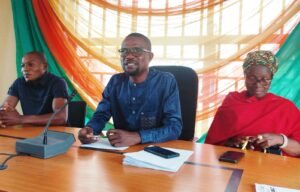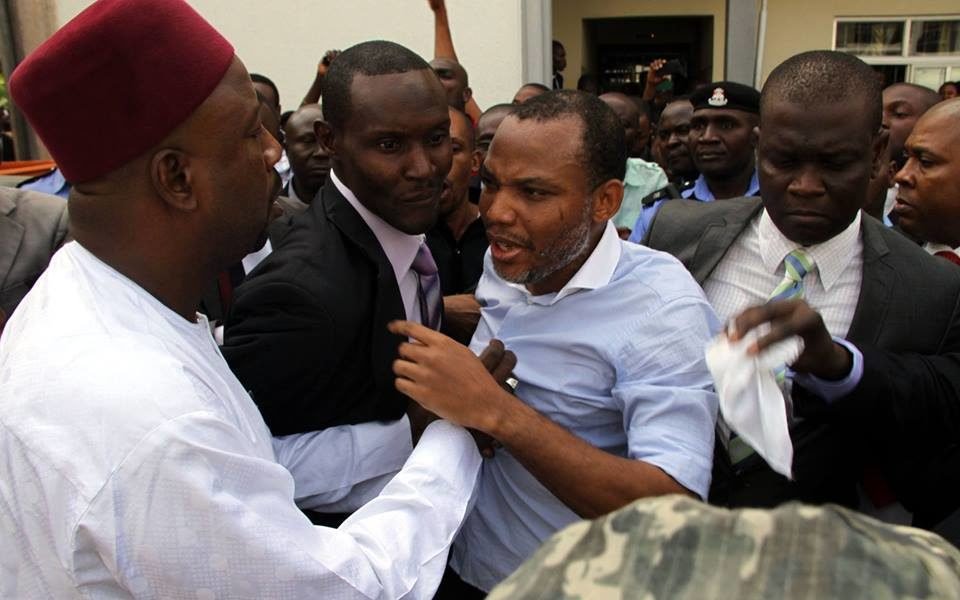
… Tasks FG, States, LGs, others to prioritise healthcare infrastructure
Civil Society Working on Malaria Control, Immunization and Nutrition (ACOMIN) has on Wednesday disclosed that it has implemented various initiatives in Niger state.
He also called on the Federal, States and local governments to prioritize healthcare infrastructure in their budgets for better welcoming spaces for both patients and healthcare workers.
While making this disclosure at a media briefing on the Global Fund Malaria Community -Led Monitoring Project, the State Coordinator, Civil Society Working on Malaria Control, Immunization and Nutrition (ACOMIN), Mr. Olasukanmi Kalejaiye said increased funding is essential for renovating and upgrading facilities.
According to him “we have yielded the following successes this year: reconnection and repairs of water connection to PHC Kaftain Tela, comprehensive health center, Mandala, Paikoro Model and Gbogbonigi for an improved healthcare service delivery.
“We were able to help in the repairs of broken generator at PHCC Kpaki, Mokwa to aid the provision of 24 hours service delivery.
“We were able to facilitate the provision of security personnel at both PHC Baki Sale, General hospital, Mokwa and improved community members health seeking behaviour across all our project implementing communities.”

In the area of awareness creation, “we sensitized communities on the free HIV and TB testing and treatment across the GF facilities.
“And at the PHC Manbuhari, water was their problem, but with our intervention, the women gathered themselves to be provide water for the facility pending when they will have a permanent solution.”
While calling on governments at all levels including private sectors for improved healthcare service delivery, Kalejaiye said “comprehensive policies should be implemented to ensure regular maintenance of healthcare infrastructure and timely replacement of outdated medical devices”.
Kalejaiye told newsmen that, as a result of the successful completion of the NFM 3 Malaria Grant, Global Fund has approved another three-year Malaria Grant for Nigeria, led by the National Malaria Elimination Programme and Catholic Relief Services.
Accordingly, he said, “I am calling in the federal, states, local governments, Private Sector, Mass Media and Communities to increase investments in the upgrading and maintenance of the much-needed facilities and to view healthcare investment as part of their social responsibility.
“We observed that many health facilities are housed in ageing buildings that have significantly deteriorated over time. These structures often exhibit visible cracks and leaks, roofs are on the verge of collapse, raising serious safety concerns for both patients and healthcare workers. The compromised states of these buildings not only undermine the quality of healthcare services but also deter community members from seeking care.”
While speaking on inadequate Medical Equipment at facilities, Mr . Kalejaiye said “there are lack of functional medical devices in some primary healthcare centres like essential diagnostic tools such as weighing scales, sphygmomanometers, and thermometers.
“Without these functioning devices, healthcare workers are unable to perform basic procedures, which then result in delays and misdiagnoses”.
Mr. Kalejaiye however disclosed that, when PHCs consistently fail to meet patients’ needs due to a lack of medical equipment, communities lose trust in the healthcare system.
“As a consequence, patients travel to better-equipped facilities or private clinics to access necessary diagnostic and treatment services, which lead to increased out-of-pocket expenses.”
He further disclosed that, the implementation of the grant is ongoing in (13) states namely Ogun, Delta, Osun, Kaduna, Kano, Kwara, Gombe, Yobe, Katsina, Adamawa, Taraba, Niger, and Jigawa states.

















